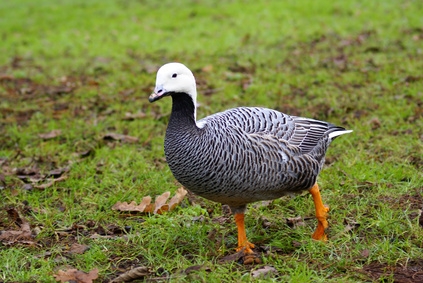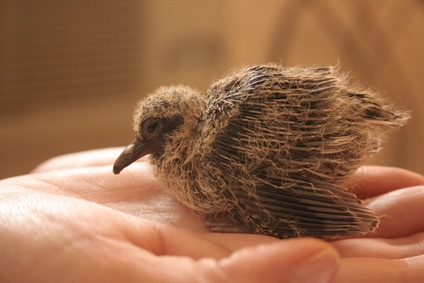In this article we're going to discuss how to tell if you've got a sick bird on your hands.
Unlike people, birds can't tell you when something hurts or they just feel like garbage. So how do you tell when your bird is under the weather?
Most sick birds get that way because of poor nutrition and stress. Poor nutrition is more from what a bird eats than from how much, as birds don't need a lot of food. Stress can come from a number of things such as poor environment and rapid changes in temperature. A happy bird is usually a healthy bird.
A problem with identifying if your bird is sick is that birds tend to hide their health from you. This is a built in ability that birds use to keep other animals from attacking them. It is part of their survival instinct. Because of this ability it may be a couple of weeks before a bird owner even knows that his bird is sick. Therefore, in order to determine that there is a problem with your bird you have to be observant at all times. There are signs to look out for. These include discharge from the eyes, change in eye color, closing of the eyes, swelling around the eyes, discharge from the nose, soiling of the feathers, sneezing, trouble eating, reduced appetite, fluffed up feathers, inactivity, droopy wings, change in routine, change in vocal habits, weight loss, problems with equilibrium, inability to perch, limping, swollen feet or joints, change in droppings, open mouthed breathing when at rest, lumps on the body, and any sign of bleeding. Some of these symptoms are very serious.
If you notice any of the above and suspect your bird is sick, immediately make an appointment with a vet. Take him there in his cage or some suitable container. Don't ever take your bird to the vet with him perched on your shoulder. Your pet will not be protected. Whatever container you use make sure it is covered. If you take it in its cage don't clean the cage. This can present evidence to the vet that can help diagnose the bird's problem.
After taking the bird to the vet and a diagnosis is made, take the bird home immediately. Home care at this stage is very important. Keep your bird warm and try to encourage it to eat. Sick birds have usually stopped eating so it is important for them to eat well to get their strength back. If they are unable to eat then they may need to be hospitalized.
Unfortunately, by the time an owner realizes his bird is sick, the bird is more than likely seriously ill. Therefore it becomes even more critical to give your bird the best care possible. Most owners go to pet stores first to try to treat the bird instead of going straight to the vet. This only makes the problem worse. However, if you catch the bird's illness quickly enough you'll have a very good chance of getting him back on his feet.

 A Guide to Song Group Canaries
The Three Canary Groups - Co
A Guide to Song Group Canaries
The Three Canary Groups - Co
 Northern California Bird Identification
Northern California Bird Identification
Northern California Bird Identification
Northern California Bird Identification
 Ways to Decorate a Bird Cage
Ways to Decorate a Bird Cage
Ways to D
Ways to Decorate a Bird Cage
Ways to Decorate a Bird Cage
Ways to D
 Parrots of Australia
Australian ParrotsThe Easter
Parrots of Australia
Australian ParrotsThe Easter
 How to Take Care of Wild Baby Birds
How to Take Care of Wild Baby Birds
Ho
How to Take Care of Wild Baby Birds
How to Take Care of Wild Baby Birds
Ho